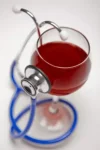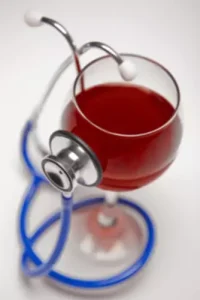
You don’t know if your baby has these kinds of problems when he’s born, but they may affect him later in life. Fetal alcohol spectrum disorders are 100 percent preventable. However, this requires that a mother stop using alcohol before becoming pregnant. Because no amount of alcohol is proven safe, women should stop drinking immediately if pregnancy is suspected.
- Alcohol is a “teratogen,” something known to cause abnormalities in a fetus after prenatal exposure.
- At St. Christopher, she also oversees a primary care practice dedicated to CYSHCN, including an FASD/NICU primary care follow up program and grants.
- FASD can happen when alcohol in the mother’s blood passes to her baby through the placenta.
Health Care Providers

All types of alcohol are equally harmful, including all wines and beer. Children born with this syndrome experience the symptoms throughout their entire lives. Some symptoms can be managed with treatment by a healthcare provider, but they won’t go away. Symptoms of fetal alcohol syndrome may include any mix of issues with how the body develops; thinking, learning and behavior; and functioning and coping in daily life. If you suspect your child has fetal alcohol syndrome, talk to your doctor or other healthcare professional as soon as possible. In addition to the acute effects of withdrawal, babies often suffer the teratogenic (causing physical abnormalities) effects of alcohol.
- However, it is important for the father of the baby or the supportive partner to encourage the pregnant person to abstain from alcohol throughout the pregnancy.
- Binge drinking is more harmful than drinking small amounts of alcohol.
- Any continued alcohol use should be discussed regarding your own safety and that of future pregnancies.
- Fetal alcohol syndrome (FAS) is a condition that develops in a fetus (developing baby) when a pregnant person drinks alcohol during pregnancy.
- So to prevent FASDs, don’t drink alcohol when you’re pregnant.
Neurobehavioral Disorder Associated with Prenatal Alcohol Exposure (ND-PAE)
- A child is considered to have partial fetal alcohol syndrome when they have been exposed to alcohol in the womb and have some but not all of the traits linked to FAS.
- No, but early diagnosis and treatment for specific FAS symptoms can greatly improve your child’s life.
- This means that some people with mild symptoms of FASD might never be diagnosed.
- No one particular treatment is correct for everyone with fetal alcohol syndrome.
- No, there is no point during pregnancy when drinking alcohol is considered safe.
March of Dimes leads the fight for the health of all moms and babies. Choose a symptom and answer simple questions using our physician-reviewed Symptom Checker to find a possible diagnosis for your health issue. This information provides a general overview and may not apply to everyone. Talk to your family doctor to find out if this information applies to you and to get more information on this subject. You may also find it helpful to contact a support group for people with FASD.
Conditions on the FASD Spectrum
Alcohol in the mother’s blood passes to the baby through the umbilical cord. Fetal alcohol syndrome can also cause milestone (developmental) delays. There is no “safe” amount of alcohol you can drink during pregnancy. And there is no time during pregnancy when it’s considered safe to drink alcohol, either. A child is considered to have partial fetal alcohol syndrome when they have been exposed to alcohol in the womb and have some but not all of the traits linked to FAS.

Alcohol-Related Neurodevelopmental Disorder (ARND)
There are concerns about long-term, repeated exposures of infants to alcohol via breast milk, so moderation is advised. Frequent consumption of alcohol may also reduce milk production. If you are going to have an alcohol containing beverage, it is best to do so just after you nurse or pump milk rather than before. Breastfeeding or pumping breast milk is ok 4 hours after your last drink. That way, drunken baby syndrome your body will have as much time as possible to rid itself of the alcohol before the next feeding and less will reach your infant. If you’re pregnant and struggling with an alcohol problem, talk to a midwife or doctor.

Risks of Drinking While Pregnant
Treatment to help a mother with alcohol addiction is also recommended. Not only can this prevent fetal alcohol syndrome disorders in future children, but it can also provide parenting skills to help their child with fetal what is alcoholism alcohol syndrome. Parental training is meant to help parents to help families cope with behavioral, educational and social challenges.
What do I do if I did not know I was pregnant and have been drinking?
- FASD is completely avoidable if you do not drink alcohol while you’re pregnant.
- The rates of alcohol use, FAS, and FASD are likely to be underestimated, because of the difficulty in making the diagnosis and the reluctance of clinicians to label children and mothers.
- Speak to a GP or health visitor if you have any concerns about your child’s development or think they could have FASD.
These nervous system problems could be physical or behavioral. They might present as hyperactivity, lack of coordination or focus, or learning disabilities. The full picture of FAS usually occurs in babies born to alcoholic mothers, or to those who drink regularly or binge-drink.


